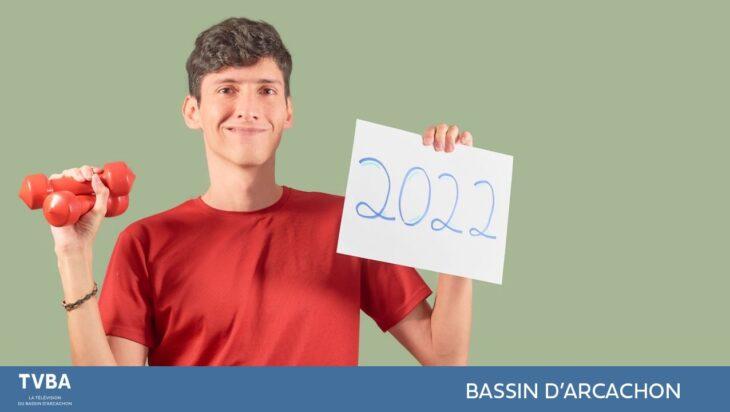
The new year and its share of good resolutions! A few days before January 1, the French federation of physical education and voluntary gymnastics is releasing its Sport Health barometer. Carried out with the IPSOS institute, this survey reveals that 26% of New Aquitaine people want to do more sport while they are much less likely to declare a sporting practice, a consequence of the pandemic and its restrictions.
The question arises at the beginning of each new year: what are your good resolutions? Yet the Covid has upset the usual responses, go on a diet, quit smoking...
On the first step of the podium for good resolutions in 2022 in the New Aquitaine region, is having a more regular sleep pattern for 28%, up 7% compared to 2020.
In second place comes the practice of regular physical activity for 26% of Neo-Aquitaine. A figure down 9% compared to 2020.
Finally, 25% of respondents want to spend more time with family or friends, 4% less than last year.
All relative intentions. Asked about keeping their 2021 resolutions, only half say they have kept at least one of them. A lower proportion compared to last year (-7%). Notably, the figure rises to 55% among those over 60, reports the FFEPGV.
The first non-competitive sports federation in France has just published its 11th sports and health barometer, conducted among a representative sample of more than 2,000 people at the beginning of December.

You can feel a desire to return to a normal life, the famous "life before", but you can see unequivocally how lifestyle habits have been turned upside down!" analyzes the president of the FFEPGV, Marilyne Colombo .
The family, sporting activity and moments of relaxation remain markers, but despite a return to an almost normal life, New Aquitaine residents have not resumed such sustained sporting activity: 64% of them report engaging in physical activity. They were 70% in 2019, 78% in 2020.
Mentally unstable, unarmed black man shot and killed by police on the anniversary of MLK's shooting death. This. M… https://t.co/MGmZU4sh6d
— WomenAgainstGunViol Thu Apr 05 01:49:17 +0000 2018
Last June, after seven months of closure, sports halls were once again authorized to receive their subscribers. However, the neo-Aquitaine people seem reluctant to take out their sports bag.
The French Federation of Physical Education and Voluntary Gymnastics nevertheless specifies that "if fewer of them practice a sporting activity, the most active do it longer". 37% say they practice three hours of sport or more per week, i.e. an average duration of 3.9 hours per week compared to 2.7 hours in December 2020. This is the longest duration ever recorded since the creation of the Sport-Health Barometer in 2011.
"Sedentariness is increasing and mainly affects women and employees" warns Marilyne Colombo.
Last year, 61% of the inhabitants of New Aquitaine said that the health crisis had made it more difficult to be able to practice a physical activity or sport. This year, 54% say they have a more sedentary lifestyle than before the crisis. Women are the first affected: 63% against 46% of men.
A sedentary lifestyle that has repercussions on social life for 62% of New Aquitaine respondents, psychological well-being for 62%, physical well-being for 60%, general fitness for 58%.
These changes are strongly felt by the inhabitants of Nouvelle-Aquitaine. 88% declare to be concerned by at least one of these negative impacts And 20% declare to feel all these negative impacts.
"If COVID has raised awareness of the importance of practicing physical activity for our mental, physical and social well-being, there must be no turning back and we must support all French people taking into account the needs or difficulties of each" warns the president of the FFEPGV.
This is precisely the mission that the Federation has set itself since its creation in 1971: to make physical and sporting practice accessible to all audiences, including those who are excluded from it. Thanks to its 7,300 facilitators, it offers courses throughout France adapted to people with disabilities, in precariousness, in rural areas or even in prison. The FFEPGV is convinced that the regular practice of sport contributes to physical, psychological and social. This is one of the best Covid remedies to prescribe as a good resolution for 2022!







